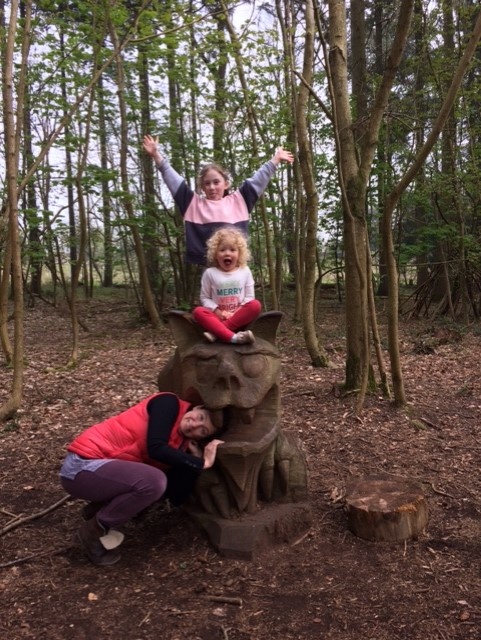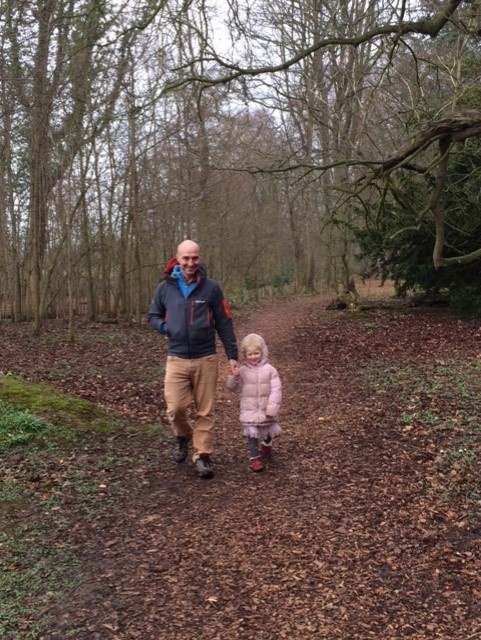
We have decided to not use school to educate our child, and instead, we serve as facilitators of Self-Directed Education (SDE).1 In contrast to curriculum-dependent, teacher-led, evaluation-heavy schooling, SDE is an educational route in which children take charge of their education and the adults are responsible for curating an environment that supports everyone in their learning.2 Our decision to pursue SDE as a family is inspired by informal observations, and it is underpinned by theory. It is both personal and political. It is an expression of privilege, and it invites an exploration of paradox.
We lived in New Zealand and were not yet parents when we first met families who were not using school for the children’s educations.3 These families embodied different values and ways of relating, and we were touched by what we witnessed; their respect for children as whole people with distinct interests, senses of purpose, temperaments, talents and preferences. Their conversations were infused with honesty, humility, tenderness, respect, and a nuanced navigation of responsibility, power and authority. Projects were designed and carried out across multiple disciplines and subject areas. It was not ordered, tidy, linear and measured like the classrooms in which we were schooled. It was intuitive, innovative. The day-to-day lives of our unschooling friends were inspiring, and enjoyment was evident.4 There was less apparent hurriedness, tension, frustration and stress than what we had observed among families who were committed to schooling. Simultaneously, we observed many other young people who were starting school, wide-eyed and thrilled by this initiation and rite of passage, they skipped into their first classrooms at five years old. By age seven or eight, when we invited them to share their experiences, we were met with shrugged shoulders, grimaces and very few words.
We both brought knowledge and experience regarding structural inequities and the ways in which they manifest in societies’ institutions—in schools specifically—to our observations. Caitlin taught briefly as a Teach For America corps member before working in a public charter school (2003–2006, USA). More recently, Caitlin’s masters research focused on racism in health professional education programmes.5 Brenton has worked with Teach First as a leadership coach for over 15 years. Brenton’s business, Beyond Now, is responsible for designing and implementing a programme that has trained hundreds of business people as Teach First coaches, coaches who have supported hundreds of teachers. Brenton has long been involved in working with educational leaders. Critical Theory, Poststructuralism, and Indigenous Epistemologies also informed our lenses for understanding. These theories lend to viewing schools as institutional expressions of hegemony, as organisational bodies that shape young bodies and professional bodies into ones who will obey and maintain the socio-cultural status quo. They are spaces that function to marginalise, and sometimes even exclude. Schools are spaces that assert what is important, what is valued, what is desirable, what is necessary.
Our observations of a few families in New Zealand provided a blueprint of possibilities, one that urged us to question what we might choose for our family and how we might contribute to the creation of a fairer, more just and loving society for all. We started researching unschooling and discovered more theory and new understandings about the educative instincts with which we all are born.6 We are learning about play’s centrality to learning, about the trouble(s) with testing, about freedom from arbitrary time constraints.7 We are learning about children’s rights, about consent, and about how to uphold children’s rights in a society that assumes adults’ ontological superiority. We are learning about human needs for nature.8 We are learning about a hypothesis that many diagnosed learning difficulties may be symptomatic of a coercive schooling system, not underachievement relative to aptitude.9 And we know that this learning will not cease, but rather grow in depth and complexity.

Choosing to follow this path is an expression of privilege and is wholly reliant on our educational successes. Because we experienced success in school and higher education, we can proceed as SDE facilitators, trusting that we have adequate social, intellectual and financial ‘capital’ to access what our child may need in pursuing their education. Our whiteness means that we navigate the world without the burden of experiencing racism; when people meet our child in the world, during school hours, we can trust that they (our child) will be met with neither suspicion nor fear; we are able-bodied, neurotypical parents. Our personal encounters with oppression are extremely limited. And we can manage on one income. With this privilege comes responsibility. We are responsible for dismantling the systems that function to benefit us. We are responsible for recognising, understanding and transforming the ways in which we embody and are complicit in enacting the oppressive ideologies that shape our world. These responsibilities are at the core of our SDE aspirations: we maintain a deep and abiding idealism about a world that may be co-created alongside children whose daily lives are characterised by respect, consent, trust, play, cooperation and reflection. And we believe that these responsibilities must be realised in community, beyond our individual family. Thus, we are beginning to imagine how to initiate a larger project that includes many students and families.
In support of our imaginations, we visited the Agile Learning Center (ALC) in New York City (NYC) in May of this year.10 This flagship school is in its sixth year. It has initiated a quickly expanding global network, and is a living example of a new paradigm, one that provides ‘maximum support [to its students] with minimal interference’.11 It is a learning community that is committed to creating safe, respectful, responsive cultural norms, while every person pursues their own education as they see fit. It is a collective endeavour. Sharing one’s learning is understood as essential. The students work together in mixed-age groups. The adults who hold space in the ALC are called Agile Learning Facilitators (ALFs). The younger people are facilitators too. Traditional school hierarchies have no place there. Everything is an iterative process. ALC NYC documents all learners’ work daily, creating portfolios that are composed of the students’ self-reported reflections, experiences and outputs. And, guess what? The children and adults report that they are happy to be there. When there is conflict and people are feeling aggrieved, frustrated or upset, there is a consensual, supported process for communicating and making amends.